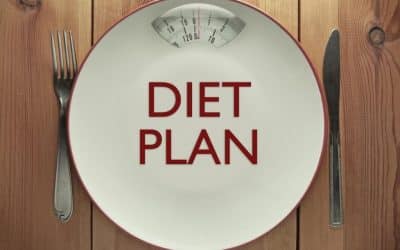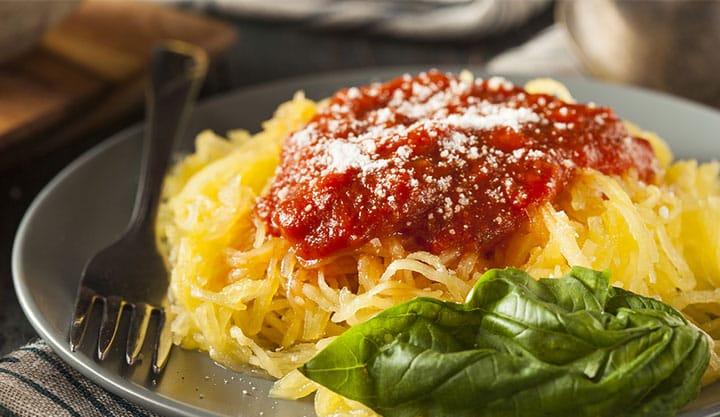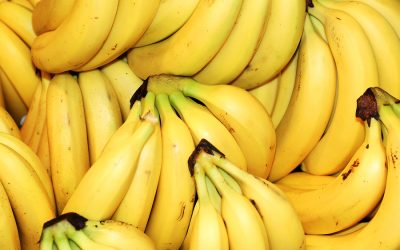Losing weight is not easy and it takes a lot of effort to achieve your desired goals. Foods rich in carbs can easily increase your body weight. Although fruits, oats, lentils and vegetables also contain some carbohydrates, they are mostly complex carbs that are healthy and take time to digest.
Limit the amount of pasta, rice and white bread you consume. They are rich in simple carbs that are easily digested, leading to fast weight gain. Sugars are found in almost all types of foods. However, natural sugars found in fruits are healthy as they don’t contain calories that easily lead to rapid weight gain.
Eating healthy and exercising regularly can help you cut extra fats and calories from your body. Healthy eating aids in weight loss as it leaves you satisfied and feeling full for longer even after taking just a small portion of food. Fats and carbs are important in weight loss when taken in the right quantity and from healthy sources.
Exercise is the key to losing your weight besides eating healthy. Weight loss motivation is also important to keep you going during the process of losing weight. Here are top 6 weight loss tips that have been proven by various studies to be effective to help you shed off excess fats:
Top 6 Weight Loss Tips to Help You Cut Down Calories
Eat Proteins to Keep Your Day Going
Proteins make one feel full for longer within no time and are digested at a slow rate. Eating sufficient quantities of protein can keep you going throughout the day as it nourishes you with energy. When taken with carbohydrates, proteins can help stabilize your blood sugar levels as well as energy.
Did you know that protein is a rich source of energy? The nutrient is progressively made available in your body for longer periods, keeping you going. As a result, you can stay longer without craving for more food after eating a diet rich in proteins. Beans are an excellent source of proteins.
Eat Food in the Right Portions
Serving food on a large plate can make you want to eat more or to complete everything on your plate to ensure no food goes into waste. It is advisable to eat food in small portions. Serve food in small plates to help you eat in small amounts. Avoid displaying or storing junk food in open places where you can easily access or see them.
Unhealthy foods tend to be attractive and can make you pick what you first see for consumption. It also means you can end up eating more than your body needs even though it is not healthy. When taken often, junk foods can rapidly cause weight gain. Consume lots of green and fresh vegetables and fruits whenever you feel hungry.
Consume Healthy and Nutritious Foods
Avoid skipping meals or starving yourself. Eat highly nutritious meals to fuel your body with energy throughout the day. Eat regularly to stabilize energy levels in your body. It is better to feel satisfied, but not starved. People have different tolerance levels to different foods, making the challenges they experience unique.
Most foods look appealing, especially those considered unhealthy. Therefore, it is advisable to start with a plate of salad before eating the main dish. Foods rich in simple crabs can increase blood sugar levels in your blood. As a result, your body triggers the release of insulin to facilitate excess fat storage, leading to weight gain.
Spend about 80% of your time eating highly nutritious foods such as fresh vegetables, fruits, unsaturated fats, whole grains and lean proteins. Regular exercises can also help with weight loss. The remaining 20% of your time can be taken to eat foods high in calories or less nutritious.
French fries are rich in empty calories. When consumed in large quantities, they cause insulin resistance, weight gain and high blood pressure. Never skip your breakfast as it is the most important meal of the day. It can boost and energize your body ready for the long day ahead.
People who skip breakfast have low concentration in what they do. They experience hunger pangs, making them opt for poor, less nutritious foods.
Prepare Your Meals Like a Pro Cook
Prepare everything you need to cook in time to avoid last minute rush. Early preparations ensure you don’t opt for snacks or junks when you realize there’s nothing left to eat. Check your refrigerator and shelves to see what’s available to be cooked for later consumption.
Maybe you’ve got work the next day, but failed to remember to check if there’s anything ready to prepare or bring with you for lunch at your workplace. In the morning is when you realize there’s nothing to carry for lunch. You won’t want to be late for work as you are left with no choice, but to pack up what you can find and leave.
You end up with no choice, but to go buy snacks in the supermarket or visit the nearest restaurant to your working place to take your lunch. Eating in restaurants can see you eat unhealthy foods such as burgers, French fries and soft drinks.
This makes it difficult to lose weight. When restocking your shelves and refrigerator, make sure they are filled with healthy foods such as vegetables and fruits. It is difficult to lose weight when on poor nutrition.
Consume Healthy Fats
Trans fat and saturated fats are not healthy. They cause many lifestyle diseases such as heart diseases and high blood pressure. Monounsaturated fats are the recommended fats to be eaten as they also prevent overeating. Sources of saturated fats include olive oil, avocados, flaxseeds and salmon oil.
Eat Foods rich in Healthy Complex Carbs
Many people aren’t aware that vegetables, oats, lentils, beans and fruits are also rich in carbs. They have healthy carbs that are complex in nature. They foster lose weight easily.
Foods rich in simple carbs such as pasta, rice and white bread are unhealthy and results in weight gain. Excess consumption of gluten and carbs is also harmful to your health as it causes rapid weight gain.
Learn More Weight Loss Tips and Tricks Here!
Decoding the Pitfalls: Why New Year’s Weight Loss Resolutions Often Falter and How to Ensure Success
As the clock strikes midnight on New Year's Eve, many individuals around the world embark on a fresh start, armed with resolutions to transform their health and fitness in the coming year. Weight loss resolutions, in particular, are common and reflect a desire for...
Navigating Weight Loss: Vegetables to Approach with Caution
Embarking on a weight loss journey often involves careful consideration of food choices, and while vegetables are generally considered healthy, not all vegetables are created equal in terms of their impact on weight management. In this guide, we'll explore vegetables...
Navigating Weight Loss: Fruits to Approach with Caution
Embarking on a weight loss journey often involves making mindful choices about what you eat, and while fruits are generally considered healthy, not all are created equal when it comes to supporting weight loss goals. In this guide, we'll explore fruits that...




